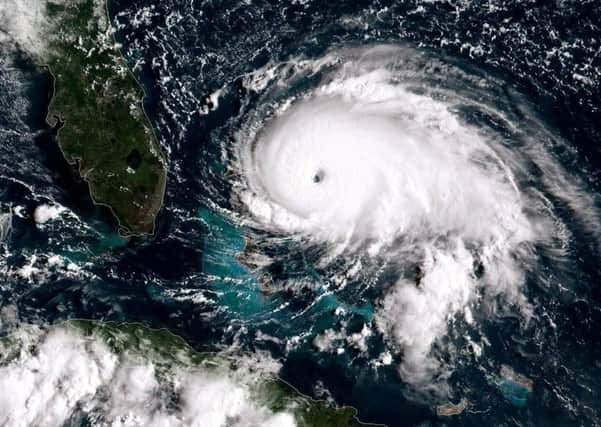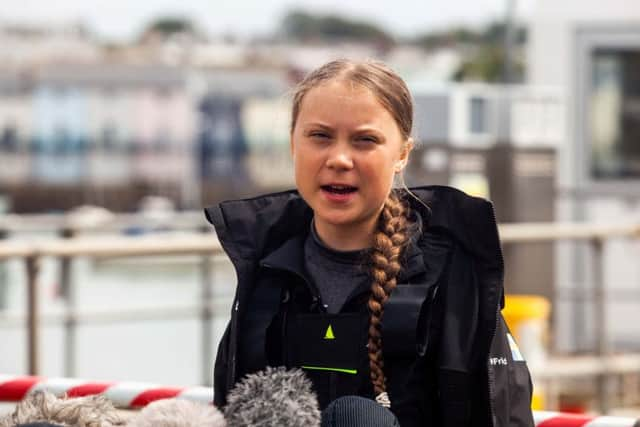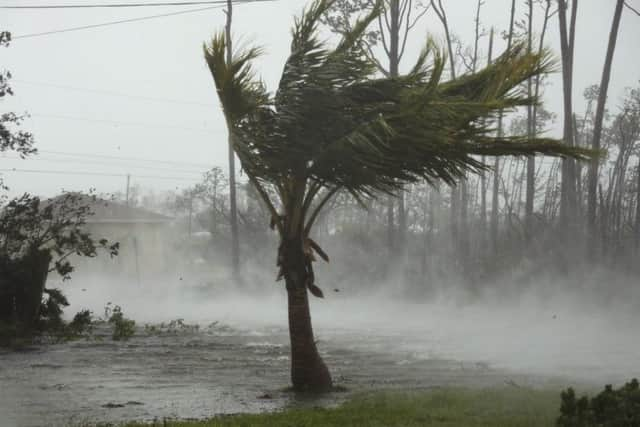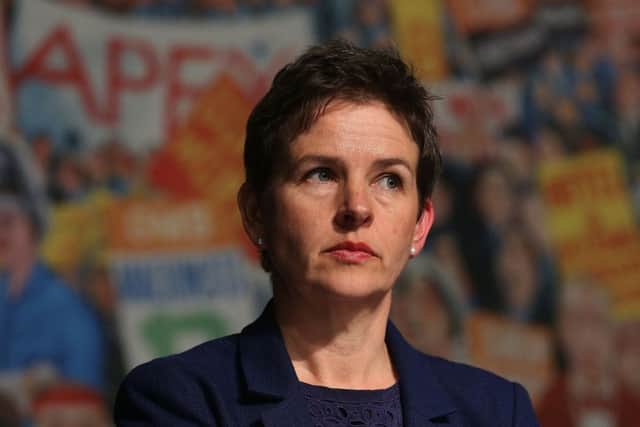My food security fears ahead of no-deal Brexit and climate change catastrophe – Mary Creagh


“Our house is on fire…it is time to panic”, says 16-year-old, Greta Thunberg, who has inspired a global movement of students for climate action. On Friday, I will be standing beside them in Wakefield to support the global day of action and amplify the voices of people calling for climate justice to secure their future.
Advertisement
Hide AdAdvertisement
Hide AdEverything we do to the planet, we do to ourselves. We have exploited our land, our air and our seas and we have changed the climate. Irreversible damage has occurred to the planet, our only life support system, putting lives at risk.


My committee’s report Our Planet, Our Health, published this week, looked at how this damage is affecting our environment, food systems and human health. The reality?
Advertisement
Hide AdAdvertisement
Hide AdWe are facing a food security crisis in the UK. We produce less than half of the food we eat, and depend on just two countries, Spain and the Netherlands, for 55 per cent of our fresh vegetables. In the short term, the possibility of a no-deal Brexit puts our food supply at risk. The Government was forced to publish Operation Yellowhammer documents by Parliament last week. Rising food and fuel prices, disruption to medicine supplies and public disorder were all revealed as potential outcomes of a no-deal Brexit.


The most chilling assessment was that “low income groups will be disproportionately affected by any price rises in food and fuel”. A no-deal Brexit hits the poorest hardest. Already in the UK, the fifth richest country in the world, one in five children live in a food insecure home and food bank usage is at a record high.
But, in the longer term, extreme temperatures and changes in rainfall patterns could bring new diseases to the UK’s livestock and crops could be hit by water shortages.
Advertisement
Hide AdAdvertisement
Hide AdA fifth of the UK’s fresh fruit and vegetables comes from countries vulnerable to climate breakdown.


Government efforts to increase our resilience to these challenges are inadequate – advisers warn that the Government’s plans for a climate crisis were being run like Dad’s Army, leaving the public at risk. The Government has slashed the bodies responsible for protecting our environment. Natural England, the steward of England’s environment, is at “crisis point”, having had its budget cut by more than half in the last decade.
Defra, the ministry in charge of food and the environment, has seen the largest budget cuts of any department.
My committee recommended that the Government publish all information they hold on food security and the likely costs of a no-deal Brexit. This should be done well in advance of the food security assessment due by the end of this year.
Advertisement
Hide AdAdvertisement
Hide AdWe want a new National Food Council made up of farmers, businesses, researchers and NGOs who can work together to design a food system that works for people and the planet.
We also need diets that don’t cost the earth. In the UK, agriculture contributes up to 10 per cent of our greenhouse gas emissions and we waste an astounding 10 million tonnes of food every year. That is why I am delighted the NFU has committed to agriculture achieving net zero emissions by 2040.
The good news? Here in Yorkshire, transforming our food system can bring life back into our fields, villages and towns, whilst reducing the UK’s food insecurity and protecting the environment in the process.
Supporting local, sustainable agriculture will reduce our reliance on imports. Eating local means fewer miles from farm to plate, fresher produce, less food wasted and a revival of the rural economy.
Advertisement
Hide AdAdvertisement
Hide AdThe Government must set out how it plans to protect the UK’s food security from a changing climate, without leaving behind the poorest people. The Committee on Climate Change say we must reduce our meat and dairy consumption by 20 per cent to get to net zero emissions by 2050. Government procurement, NHS meals and school dinners should all be sustainable by default and ‘meat-free Mondays’ become the norm, not the exception.
As thousands take to the streets to voice their concern about the state of the planet, they need governments ready to listen and to act. The earth is our only home. We should look after it.
Mary Creagh is Labour MP for Wakefield and chair of Parliament’s Environmental Audit Committee.